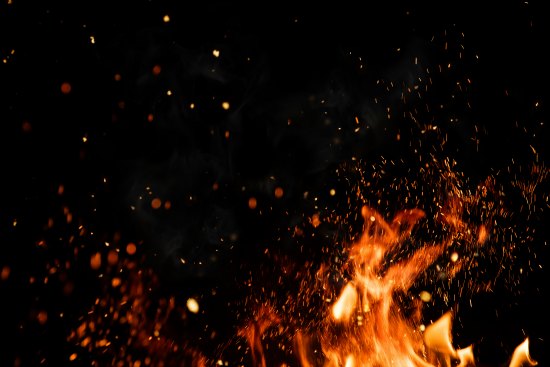
Regardless of whether or not you’re a prepper, arguably one of the most important safety devices you should have in your home is a fire extinguisher. Fire presents a possible danger no matter where we live, and having a handy device to put out the flames is a must. And it doesn’t just make sense from a safety perspective. It makes a lot of financial sense too. Most fire extinguishers cost less than a hundred dollars but can prevent thousands, or even hundreds of thousands of dollars in damages.
However, most people aren’t aware that there is an alternative to the classic red fire extinguisher that we’re all familiar with. Since the fire extinguisher design hasn’t changed much in decades, you might think that there isn’t room for improvement, but there is. Behold, the Elide fire extinguishing ball:
As you can see, the Elide Ball has a distinct advantage over an ordinary fire extinguisher, in that you can put the flames out from a further distance. The ball is designed to automatically burst after being exposed to flames for 3-5 seconds, and won’t go off without the presence of fire. It’s always ready to go, and doesn’t require any training or specific techniques. It uses a fire-retardant chemical called mono ammonium phosphate, which is typically used in ordinary fire extinguishers since it’s non-toxic. Also, the ball only weighs around 3 pounds, so it’s not difficult to throw.
The Elide Ball costs about $120 and is supposed to last 5 years. Since that costs more than a regular extinguisher, that’s really the only disadvantage with the device. So far there aren’t any well-known distributors for the Elide Ball in the United States, but it can be purchased on eBay. Alternatively, there is a knockoff called the AFO Fire Ball, which can be bought on Amazon and costs half as much. But being a knockoff, it isn’t clear yet if that brand is as effective as Elide, so buyer beware.

That is pretty cool. I wonder how it would do in a wild fire?
So, what is in it? Years back we had “Carbon Tetrachorlide: glass bombs in hospitals and everywhere. You would simply throw it at the base of the fire. They removed them all in the 1950’s. Some dingbat said they were a fire hazard. Go figure.
I’ve still got one of those. CCl4 is not a healthy compound to be around…. but far healthier than the fire and whatever it is burning
If they contein the same chemical as some conventional fire bottles, WHY are they so stinking expensive? Someone is making a killing on this at that price. Just buy the bulk chemical, seal it in something, and use that. So what if it doesn’t have the UL sticker on it? If it kills a fire, what else does anyone want?